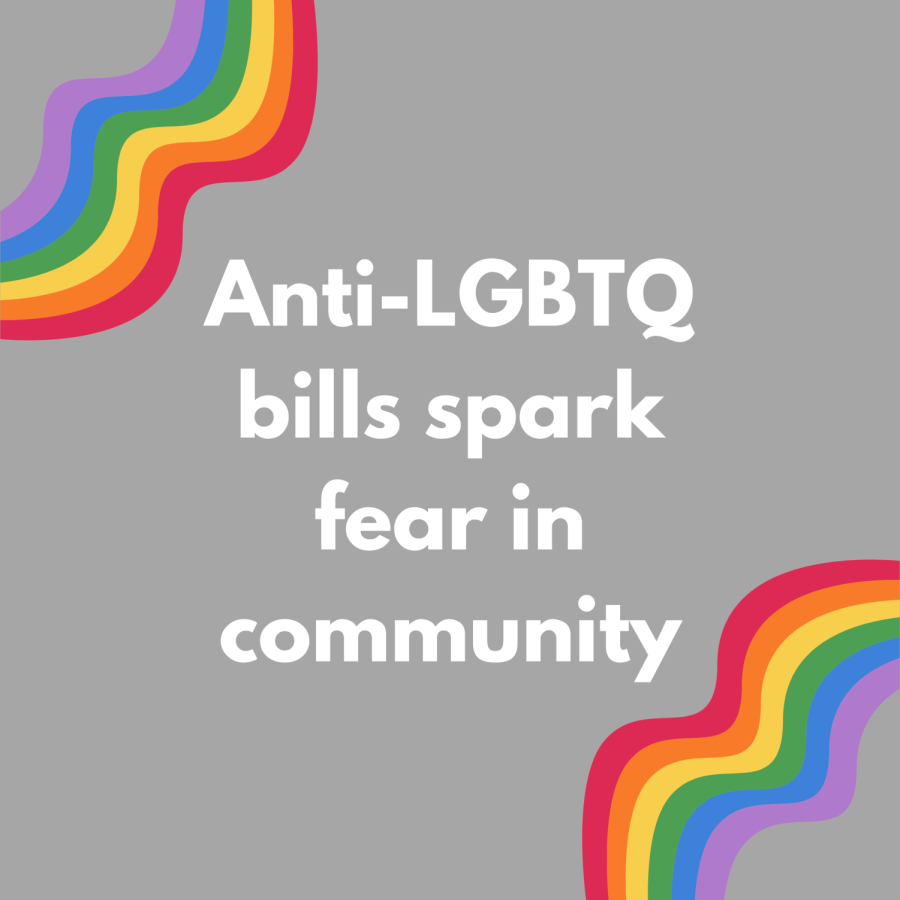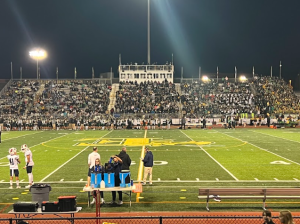Anti-LGBTQ bills spark fear in community
May 14, 2022
Recently a bill that has been dubbed “Don’t Say Gay,¨ has gained media attention and sparked outrage among members of the LGBTQ+ community and its allies. The bill prohibits discussions of LGBTQ+ issues in K-3 classrooms and was signed on March 28th by Florida Gov. Ron DeSantis. DeSantis claims that this legislation is meant to protect parental rights within schools, but its blatantly homophobic motivations are not well hidden. Unfortunately, but not surprisingly, this bill is only one of many. NBC reports that less than three months into 2022, over 200 anti-LGBTQ+ bills have been filled, a number that nearly quintuples the 41 filed in 2018, which was just a mere four years ago.
Activist and Director of the Training Institute at Bradbury-Sullivan, Liz Bradbury, MFA, says that “all these efforts to have these anti-transgender bills in many many ways they are absolutely unconstitutional,” and that “the whole concept of don’t say gay is really unconstitutional.” Bradbury references the Bostick V. Clayton County 2020 Supreme Court case as to why these bills are unconstitutional. In a 6-3 decision, the court concluded that discrimination based on sexual orientation and gender identity falls under sex discrimination, and is therefore prohibited by the 1964 Civil Rights Act under Title VII, which prohibits employment discrimination based on topics such as race, gender, and religion.
The prevention of putting politicians in power who fight to pass this legislation is key. Bradbury urges people to vote, not only in major elections but also in local ones, such as for the school board. “You have to influence the people who are making laws, that they’re wasting their time doing that because it’s harming people and it’s harming LGBT youth,” Bradbury says.
These legislations without a doubt hurt queer youth, however, they also affect a much broader group of people. The legislations impact kids who grow up in a home with queer parents who now think their family is considered “other” or atypical. It impacts those who are questioning their sexuality or gender identity, those who care for queer children, LGBTQ+ school staff, and so many more. This is a problem that impacts everyone. It once again enforces the notion that for queer people simply just existing is an act of bravery, resilience, and rebellion as well as perpetuates the idea that being queer is shameful and abnormal. Remember being a kid who is figuring yourself out — now picture seeing people try to rip away your rights every time you see the news.
Luckily, school is one place where many LGBTQ+ students found a safe haven. Students are oftentimes free to explore labels, escape what could be an unaccepting and affirming household, as well as be their authentic selves without fearing scrutiny they may face from family members. Currently, EHS aims to create and maintain that safe space for queer students by providing a Gay-StraightSAlliance, a gender-neutral bathroom, counselors who take professional development to best support LGBTQ+ students, and the option to change names on PowerSchool. This safe space is being threatened by politicians and their hateful policies.
Dr. Trevor Pinho, one of Emmaus High School’s school psychologists and advisors of the GSAay-Straight Alliance, stresses that bills such as “Don’t Say Gay” harm LGBTQ+ students’ mental and emotional wellbeing. “It stands to reason that bills which limit schools’ ability to support students worsen these outcomes,” Pinho says.
Although at times like these where attacks on personal identity are frequent and it is easy to be enveloped by feelings of isolation, fear, and outrage, all hope is not lost. “Violence breeds activism, discrimination breeds activism,” Bradbury says. In Florida, this is already being seen with students organizing school walkouts in protest of DeSantis’ decision. Action can always be taken, even in the bleakest of situations. The queer community is one that is based on resilience. Yes, these legislations are detrimental, painful, and distressing, but they are not something that cannot be overcome. Vote, speak out against injustice and be aware of the companies, institutions, and politicians in which you support. Remember that behind every one of these bills is real people whose existence will be threatened and put in danger. Supporting the politicians who put them into place or even remaining neutral is a detrimental act that rips away the safety, security, and protection queer people have fought so hard to gain for so long.












